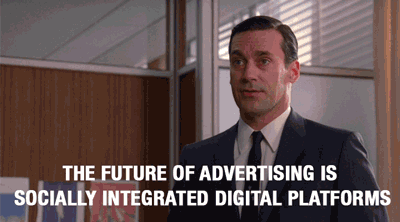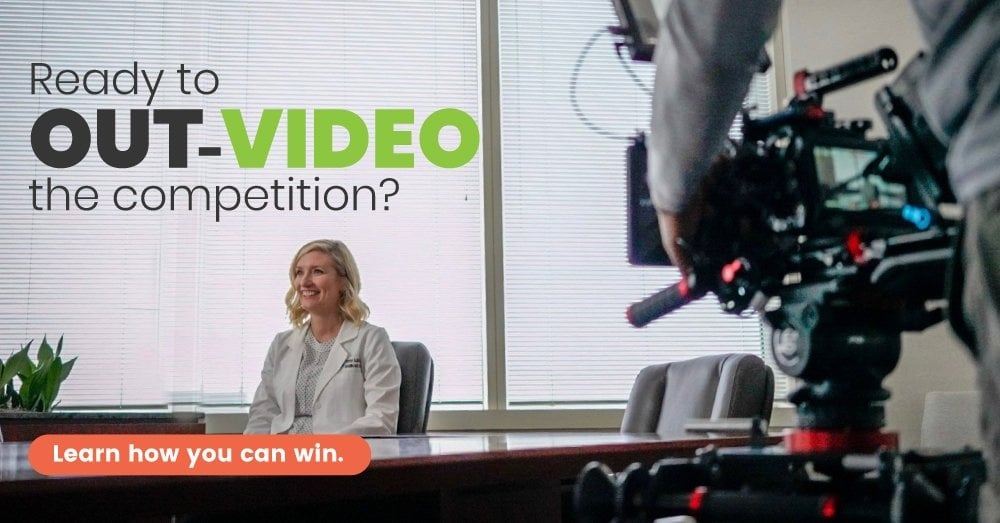
Marketing is evolving once again, and with the rise of big data and integrated technology, it’s changing rapidly. In 2005, we saw the rise of inbound marketing.
Inbound marketing is a business methodology that attracts customers by creating valuable content and experiences tailored to them. While outbound marketing interrupts your audience with content they don’t always want, inbound marketing forms connections they are looking for and solves problems they already have.
This technology-integrated marketing methodology took the industry by storm, giving rise to hundreds of inbound specific agencies and redefining the way content is utilized to drive engagement and secure leads. Out were the old ways of traditional marketing and advertising strategies where industry professionals would bombard audiences with advertisements and messages designed to persuade and lure customers into sales.
With inbound marketing, we found customers who were already looking for what we had to offer and supported their buying journey through educational and valuable content, slowly walking with them through their awareness, consideration, and decision-making phases of the buyer’s journey. It’s a sound strategy that aligns with modern technology and the current personality of the market.
However, it’s getting old, oversaturated, and impotent. How many blogs do you think are drafted on a given day? As of March 2019 4.4 million blog articles are published every day!
The Tide is Shifting
Content is still king, but it’s moving toward quality instead of quantity. With inbound marketing methods one must create a steady flow of content for every stage in the buyer’s journey that is intended to aid customers through their own research, moving them towards a conversion/sale.

But what about customers who don’t know enough about their problems to begin researching? What about customers who don’t know they have a problem yet?
Inbound is fantastic for those who know their problems and are motivated enough to look for solutions. However, a vast majority of potential customers don’t have the knowledge to identify the problems they are having or are not properly motivated to begin researching solutions. This is where the state of modern marketing is evolving: to bring more knowledge to the customer about identifying problems and motivating them to seek solutions.
Inbound is only a small fraction of how marketing has shifted in recent years. The search engine optimization monster is another example. Google has a dictatorship on SEO. How they value and evaluate website pages for search results changes constantly.
Did you know that mobile-first website design is one of the highest priorities for Google search results? This means you can keyword your website all day long, but if you don’t have a mobile-first design, chances are you won’t show on page one of a search.
What about social media marketing? Long gone are the days of organic social growth and authentic audience building through Facebook, Instagram, and Twitter. Social media platforms are constantly adjusting their algorithms, which restrict the reach of your organic posts and limit the reach of your messages to your followers.
In order to break through on these platforms, we must now pay to play in the form of social advertising. Depending on how you want to frame it, they are literally holding your own followers as ransom. If you want to reach the audience you built on their platforms, you must spend money in the form of advertising.

The most recent marketing phenomenon is the podcast and what I call disruptive authenticity. Podcasts, especially when done unedited, allow the host to display their authentic self to an audience. This kind of unscripted, unpolished messaging strategy resonated quickly with the market, who for years have been placated with pre-approved canned messages. Podcast engagement is growing rapidly.
As of 2020, 49% of all Americans 12-34 listen to at least one podcast per month, compared to 42% in 2019. As evidence of the impact podcasts have on current market trends, just look at the $100 million deal Spotify offered Joe Rogan for the rights to his long-form podcast, The Joe Rogan Experience. Because of this rise in popularity for podcast content, today’s thought leaders must be able to think quickly off-script and exude authenticity to their audience. It’s the raw connection with an audience through authentic human communication that makes an impact.
What’s the Next Big Wave
The future is a hybrid of inbound, traditional, and authentic marketing tactics that seeks to educate audiences on the problem, support customers who are researching, and connects with people in an authentic way.
Video is the leading content format for the future of marketing. It’s the primary content format for social media platforms and is proven to yield the highest conversion rates on landing pages. Video has the ability to convey complex messages directly to your audience while they consume your video content on their mobile devices. Video is easily accessible and it can be shared through email, social media, and in presentations.
Remember when we discussed Google’s mobile-first website priority when it comes to SEO strategy? Think of video as the mobile-first strategy for content. Do you really want to read a blog or white paper on your phone or tablet? No, that’s a terrible experience and for some it’s completely unrealistic. But imagine formatting the same information from your white paper and turning it into a video. This is easy to digest on any device for any audience.
We briefly discussed the changes that affect social media platforms and our ability to reach audiences through organic posts. Social media platforms have found a way to monetize the communities that engage on their platforms through advertisements. This is the way and it isn’t going anywhere. We must accept it and work with it in order to utilize social media to our benefit.
While it may seem like a bummer, the benefits to running ads on social media is the ability to build hyper niche audiences through the platforms and serve and test our ads to said audiences. This is an amazing tool for marketers because we can become hyper-focused on messages that serve a very specific audience. Through conversion optimization and analytics we can fine tune our ads to fit our audience like a glove. This, in turn, saves money if done correctly and doesn’t burden audiences with ads that are not relevant to them.
Using organic posts and paid advertising strategies on social media to identify niche audiences and catering to their needs/pain points is the future of marketing in the social media space. If you combine that with the amazing video content that I know you are about to create it becomes even more valuable to your audience and your bottom line.

In the beginning of this article I spoke about the inbound methodology and its goal of nurturing customers through the buyer’s journey by producing relevant content that they are looking for. You want to exist in the spaces that they are researching and then provide information that moves them to identify you as a solution to their problem. It’s a great approach, but is a bit outdated.
The next evolution in the inbound strategy is to attract the portion of the market that still hasn’t identified their problems, or who may not even know they have a problem. But how do you do that exactly? By creating customer stories that resonate with that audience.
You have to identify the problems that your audience is facing and build stories around that customer so they can self-identify to the protagonist in your message. It’s like show-and-tell. You show these customers stories that have protagonists that look, sound, and act like they do with similar problems and pain points. You tell them how partnering with you has guided the protagonist through their troubles and led them to greener pastures.
This type of messaging puts the customers at the center of the story, making them the hero, if you will. Your target audience will naturally resonate with the message and begin to see the problem/pain points that they couldn’t. It puts you in the position of educator and mentor to aid these customers through their journey to find real solutions. Your target audience grows exponentially when you help them identify problems they didn’t know they had and if combined with other marketing strategies this will produce more qualified leads that are educated and ready to work with you.

The next wave of marketing is here, and if you can put yourself in the right position you can ride it to success in 2020 and beyond. Don’t give up on your inbound and traditional marketing strategies full stop. Adjust your strategy to include some of the ideas I’ve outlined above to make the biggest splash you can in the market.
If you are ready to embrace disruptive authenticity, customer-centered stories, and video content, but don’t know how to start, let us know. We are here to help you. Let’s ride the wave, the water is perfect — jump in!













